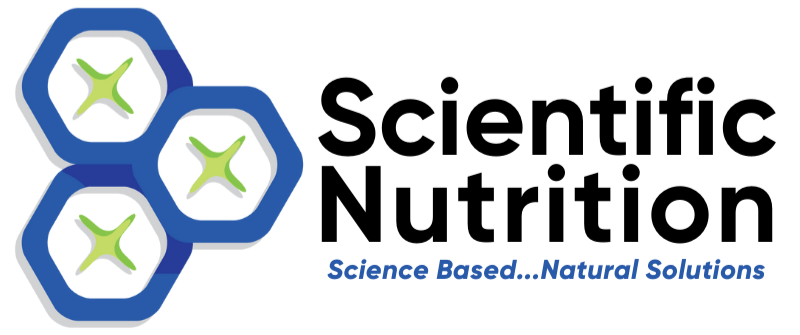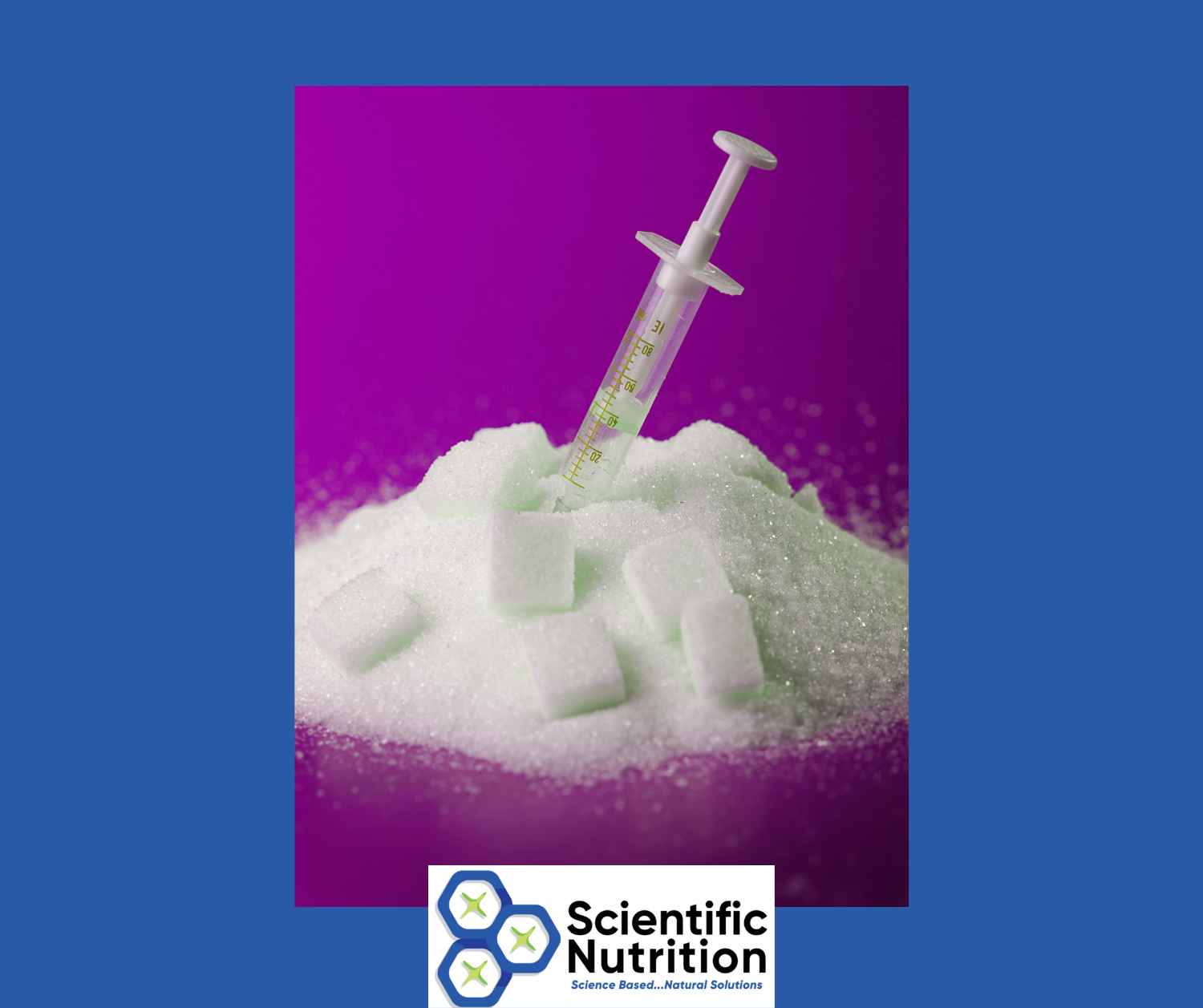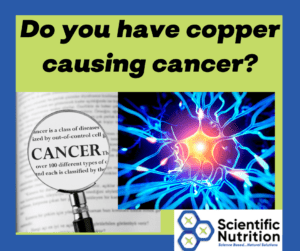Why is sugar a slow poison?
Sugar is in everything you eat. And you know when you first tasted the sugar?
When you were just born, and your mother hopefully fed you with her breast milk. From that moment onward, you associate sweetness with sugar. Sweetness is forever associated with energy and nourishment.
In the middle of the day (3:00 p.m.), people feel less energetic and unproductive, and you have seen folks eating something sweet like dark chocolate, candy, or a sugar type energy drink at that time.
This is the trap of sugar. A sweet trap. Sugar is a carbohydrate in the form of starch, glucose, dextrose, sucralose, maltose, honey, fructose, lactose, etc.. High fructose corn syrup is the worst and saturates most processed products.
When you eat sugar, your brain releases feel-good chemicals like dopamine. These neurochemical reactions create a sense of pleasure and reward, which leads to cravings for more sugar. Over time, the body can tolerate sugar and requires larger quantities to achieve the same “sugar high.”
Sugar has the highest addictive potential even more than heroin! This addiction is the dark side of sugar and causes many serious health problems.
In this blog, I will show you the biochemical process of sugar and what it does to your physical, mental, and emotional health.
How does sugar destroy your health? (A biochemical process, in simple words)
Modern diets are full of sugar. Sadly, you can’t escape it. But let me be clear: there are two kinds of it in your food.
1. Natural sugar
That is naturally found in fruits in the form of fructose and in milk in the form of lactose. Natural sugar is harmful when you are careless and use it excessively or daily.
2. Added sugar
Sugar that YOU add to your food for extra taste and sweetness. It may be brown, white, powdered, honey, or caloric sweeteners. Added sugar is harmful in any condition or form.
The biochemical process of sugar
Here is the concise process of how it works in your body:
Glucose Absorption
After you eat sugar, your digestive system breaks it down into glucose. Glucose then enters the bloodstream and causes a spike in blood sugar levels. Excessive glucose that isn’t burned for fuel quickly will convert into fat.
Insulin Release
The pancreas releases insulin in response to rising blood glucose. Insulin is the main player that opens the cellular doors to allow glucose to enter cells for energy or storage. If you eat artificial sweetener your tongue will trigger your body to push out insulin just as it does for sugar. When there is none to be found with artificial brands, your body will pulls glucose out of your liver that will be stored as fat because it is not used immediately for energy. So yes, fake sweeteners make you fat.
If you have too much insulin in comparison to sugar, the you will develop low blood glucose as it lowers your glucose too significantly. Excess insulin is also stored as fat so let’s not overwork the pancreas.
Blood Sugar Regulation
As mentioned, insulin brings blood glucose levels back to normal. Frequent consumption can lead to insulin resistance, where cells no longer respond effectively to insulin or at the least, the receptors are dull on each cell to glucose. It will also cause insulin resistance and more oxidative stress. You then need much more anti-oxidant rich foods to combat the damage. This also results in high blood glucose levels and eventually diabetes.
Sugar Highs and Lows
The rollercoaster of blood glucose levels from repeated sugar intake can lead to “highs” followed by “sugar crashes” (fatigue and irritability). This fluctuation can affect your physical, mental, and emotional state.
Physical, Mental, and Emotional Effects of Overeating Sugar
Physical Effects
You usually hear that overeating it increases your weight. True, but it’s repercussions are not limited to weight gain or obesity.
It affects you from head to toe. You even have receptors in your gut to signal your brain to produce more insulin and most likely parasites pushing you to grab something sweet.
Some other physical effects are;
Chronic Health Conditions
Sugar and chronic health conditions go hand in hand. Excessive consumption increases the chance of developing type 2 diabetes and is closely associated with insulin resistance. The impact it has on triglyceride levels and blood pressure also raises concerns about its role in cardiovascular disease, including heart disease.
Energy Levels and Sleep Quality
Sugar is a double-edged sword when it comes to energy. It initially provides a quick energy boost, but it then follows a dramatic crash, which leaves you fatigued and grumpy. These fluctuations in energy levels impact your daily life and overall well-being.
The effects on sleep quality are also significant. Consuming it too close to bedtime can disrupt your sleep patterns and affect the restorative quality of your sleep. So many crave more sweet products or carbohydrates that are converted to glucose to stay awake because their adrenals are tired.
If you are overweight, your heart is not working optimally, and your blood is not regulating correctly. Think about your quality of life. You can’t move your body as you want or do daily activities as easily. Pure glucose is your temporary source of energy and dominating your body for the worse.
Cancer and sugar: What is the link?
It’s essential to address a topic that’s often overlooked but of paramount importance: the link between this tasty condiment and cancer. While in itself, it doesn’t directly cause cancer, it does provide a fertile ground for its growth and fuels it. Excessive consumption not only leads to weight gain and obesity, they are known risk factors for several types of cancer.
Furthermore, cancer cells thrive on sugar, using it as their primary source of energy. This dangerous connection makes it imperative to be mindful of our intake. But here’s the good news: you have the power to make a change, and I’m here to help. If you’re ready to take the first step toward a healthier, sugar-conscious lifestyle, don’t hesitate to reach out to me.
Mental Effects
Sugar’s relationship with the mind is an ironic one.
Your brain needs more energy than other organs in the body. When you are tired of working, your mind needs an energy boost. When you eat it, you get a burst of energy; you feel active and productive. But this state lasts for only 15-20 minutes maximum.
After this, the blood glucose levels plummet. You may experience irritability, mental fatigue, and a noticeable dip in your mood or mental clarity. You will then crave more sugar!
Here are the long-term effects it has on your mind;
Impaired Cognitive functions
If you are the one who likes sweet dishes in every meal, your cognitive functions may be impaired. It will affect your memory and decision-making. You will feel like your mind is constantly clogged, and there is something like a “fog” in your brain which doesn’t let you think and act clearly. Sugar is the food for candida (yeast) that release gases that can affect your clarity.
Mental health disorder
Your management skills, tolerance, and behavior are all affected due to high intake. Your brain is changed when you have been overeating it carelessly for a long time. The reward system is on high alert with dopamine hormones and wanting more in the same way as a drug, sexual, or any other addiction!
It will not feel like a problem initially, but gradually, it will deteriorate your everyday life while driving you to eat more of it, so be aware.
Emotional effects
Have you seen anyone eating way too many sugary foods during times of emotional distress like pressure, sadness, loneliness, or heartbreak?
Those miserable folks are seeking solace in the temporary pleasure that it provides. They would feel happier for a moment with the dopamine fix, but after this, the same emotion will hit harder again. According to worldwide health and nutrition experts, this addiction is no different than alcohol and drugs. It highly disruptive to your natural emotional state.
Here are some adverse emotional impacts of using this sweetener;
Reduced self-control
Your mind is what controls your body. Neurotransmitters help you get anything done. It’s like a natural, internal, independent, and self-sufficient workstation. Regular sugar consumption makes it fragile, and it starts receiving external stimuli to get its work done.
Over time, it loses its control over actions and emotions. If you are angry, your anger will be out of control. If you are sad, your sadness will be extreme. The sweeter a food is, the more you will crave it and the coorelation reflects in your behavior.
Anxiety, depression, and stress
The rapid changes in blood glucose levels result in emotional highs and lows. This sweet tasting substance often becomes a go-to coping mechanism for emotional distress, leading to overeating and reinforcing the emotional cycle. If one eats to feel better then feels guilty and depressed, where does the cycle end?
It also disrupts the body’s stress response and contributes to feelings of tension and anxiety. Over time, it leads to chronic inflammation, which increases stress levels.
Heavy metals and hormones?
As mentioned, yeast (Candida) loves to eat all forms of sugar. Copper will allow yeast to grow and the two are besties with estrogen. Now you have a trifecta causing havoc from your emotions to your gut health. By cutting out the sweet food you will starve much of the yeast out and release the copper that is connected to a high estrogen. It is simply reverse engineering to the root cause of so many issues.
FAQs
1. Is natural sugar in fruits as harmful as added sugar?
Natural sugars found in whole fruits are different from added sugars BUT, sugar in any form IS sugar.
Fruits also contain essential nutrients, fiber, and antioxidants that make them a healthier choice. While they contain natural sweetness like fructose, the fiber in fruits helps slow the absorption of sugar which prevents rapid blood level spikes. Added sugars such as processed or raw cane lack these benefits and can contribute to health issues when consumed in excess too.
Cutting fruit is the best practice when trying to “burn up” the excess glucose in the blood and the cellular storage built up.
2. How can I reduce my sugar intake without feeling deprived?
Gradually cut back on sweet snacks and beverages. Replace them with healthier alternatives like fresh fruit, nuts, or unsweetened options.
Educate yourself about how they are hidden in food labels and choose products with little or no sweeteners added. With time, your taste buds will adjust to less sweetness and enjoy the natural flavors of fresh, clean foods.
3. Are sugar substitutes a healthier alternative to sugar?
NO!!!! Sweet substitutes like stevia, erythritol, and artificial sweeteners can be used as alternatives but shouldn’t be. They provide sweetness with fewer calories and can help reduce your intake but increase fat stores and insulin resistance as discussed above.
It’s essential to avoid using them and be aware of potential side effects. Some people may prefer natural alternatives like honey or maple syrup for a more balanced approach but it is still sugar. Always consult with a healthcare professional if you have specific dietary concerns.
If you absolutely need a sweetener, try Monk Fruit powder as it won’t raise your glucose level.
4. How much sugar is hidden in common foods like ketchup and soda?

This sneaky substance can be hidden in condiments and beverages. A single can of soda may contain around 10 teaspoons of sugar, while ketchup can have about 1 teaspoon of sugar per tablespoon. Holy cow right? Read your food labels and be aware of added sugars in various products to make informed choices.
5. Why is there more sugar in modern diets?
How much sugar did we collectively consume years ago compared to today?
In the past, sugar consumption was significantly lower than it is today. In the 1700s Americans at 4 pounds annually. By the 1800s, 18 pounds and by the 1900s we ate 90 pounds eat per year. Now it is over 180 pounds annually!
In recent years, there has been an increase in consumption due to the prevalence of processed and sugary foods. This increase in sugar intake is a significant contributor to various health concerns.
We have options. Replace high carb food like flour pizza crust with cauliflower crust. Trade white potatoes for sweet potatoes which are a complex carb loaded with vitamin A. Instead of white rice, eat fiber rich wild rice. Try quinoa for a complex carb with the benefit of protein as well.
Hair Analysis for sugar
Knowing your blood sugar level is important but not as much as the cellular sugar stores. You blood will use insulin to regulate the level as much as possible then store the glucose into your cells for energy later. When the cells get overloaded you may be trending towards diabetes or insulin resistance at the least.
The only true way to know where your stored sugar levels are at is a Hair Mineral Analysis. We can then focus your supplementation and dietary changes to correct the imbalance before it becomes a major health issue.
In conclusion
We all use it daily in our foods. Now, after reading this blog, it is clear that eating it is not beneficial or necessary for our body in any way. What about the taste buds which are now so used to sweets? I am not saying that you need to avoid sugar altogether.
All I am saying is that NOW is the best time to be careful, conscious, and mindful of your sweet eating habits. Choose vitality and well-being because you are worth it! If you feel like your habit is out of control and need expert guidance, LET’S CHAT about your health goals.
Further Reading and Studies
- https://www.health.harvard.edu/heart-health/the-sweet-danger-of-sugar#:~:text=%22The%20effects%20of%20added%20sugar,%2C%22%20says%20Dr.%20Hu.
- https://health.gov/sites/default/files/2019-10/DGA_Cut-Down-On-Added-Sugars.pdf
- https://www.heart.org/en/healthy-living/healthy-eating/eat-smart/sugar/sugar-101
- https://blog.uvahealth.com/2020/01/15/effects-sugar-brain/
- https://www.ndtv.com/health/our-expert-nutritionist-says-sugar-is-a-sweet-poison-here-are-the-many-dangers-of-it-1996998Copyright Scientific Nutrition 2023




